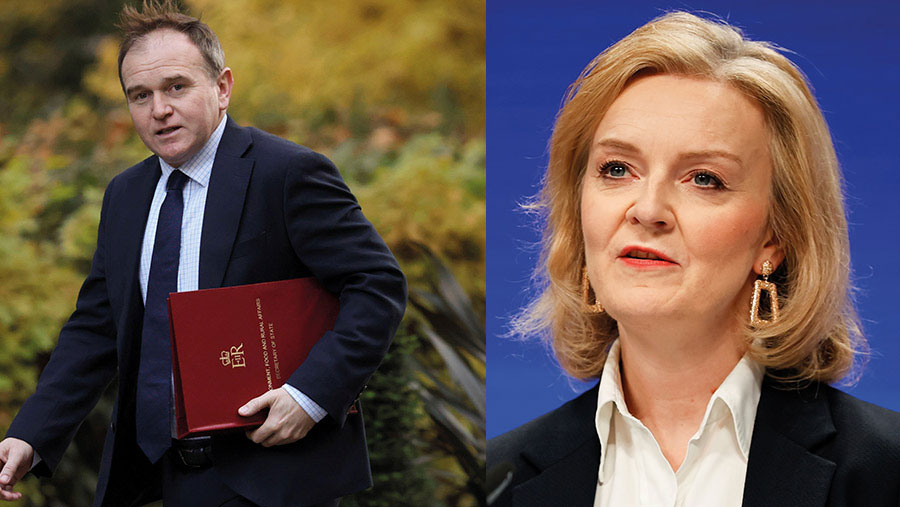Opinion: Defra in ‘unholy alliance’ with Foreign Office and Treasury
 George Eustice and Liz Truss © Tom Nicholson/Adobe Stock and Phil Noble/Reuters/Adobe Stock
George Eustice and Liz Truss © Tom Nicholson/Adobe Stock and Phil Noble/Reuters/Adobe Stock It is five-and-a-half years since the Brexit referendum, during which time Defra has been formulating new policies for food, farming and the countryside.
It launched some of them at the Oxford Farming Conference this month, and they were disappointing, if not tragic. And still, Defra secretary George Eustice admitted, they’re not finished.
See also: Landscape and Local Nature Recovery – what farmers need to know
What on earth has Defra been doing all this time?
Some we know, like conducting surveys, appointing advisers and listening to people from the NFU, the Country Land and Business Association, the Tenant Farmers Association and others who have been in and out of Defra’s office like fiddlers elbows.
But it seems to have ignored most of what those experts told them, including, arguably, the one with the highest profile, Henry Dimbleby.
The result is a mishmash of measures, some old, some new, that might have been put together by a bunch of demented academics. But few practical farmers fully understand them.
That 300,000ha of restored habitat idea was introduced as a sop to land-owning aristocrats and popstars who care little about feeding the nation
They have new names and new acronyms with which we will have to become familiar. In addition, there are headline-grabbing initiatives such as the massive tree planting programme (which I do not believe will be achieved) and rewilding.
That 300,000ha of restored habitat idea was introduced as a sop to land-owning aristocrats and popstars who care little about feeding the nation, but only lining their pockets and allowing them to keep flying around the world.
It will cost a disproportionately high share of the declining budget and leave less for food producers.
The aristos claim they are repopulating the country with species and plants that are almost extinct. But make up your own mind by reading books such as Wilding by Isabella Tree about her Knepp Estate in West Sussex.
It’s beautifully written bull***t with, for instance, a whole chapter in praise of ragwort.
The one area the latest Defra documents don’t address is the vexed question of free-trade deals being done by Liz Truss at the Foriegn Office.
A raft of undertakings have been given promising we would not import food produced to standards lower than apply in the UK.
But those deals suggest otherwise and smack of an unholy alliance between the Foreign Office, Defra and, perhaps, the Treasury. They have the potential to destroy great chunks of our industry.
NFU president Minette Batters has been commendably controlled through all this, but she and her team must be spitting tacks in private after all the work they have done to try to bring about a better settlement.
And even the cross-party Public Accounts Committee of government has expressed concern at what Defra has done.
It issued a statement saying the plan was based on “blind optimism”. It noted farmers’ concerns about the ongoing lack of detailed information.
And it stated that Defra “had not explained how changes in land use would not simply result in more food being imported, with environmental impacts of food production being exported to countries with lower environmental standards”. Quite!
It can only be concluded that Defra is a substandard department run by an inadequate minister.
And farming, the countryside and, ultimately, consumers will suffer. Such a department, whose vital task is feeding the nation sustainably, should be expertly managed by people who understand and believe in their main mission.

